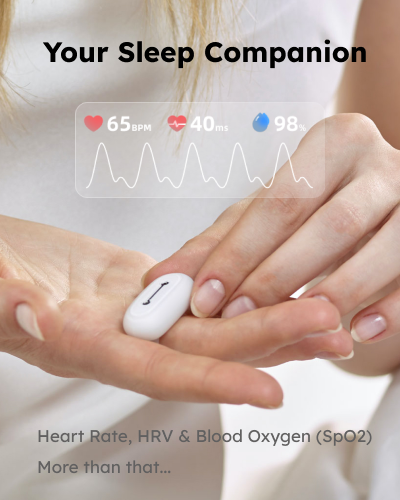
Deep Sleep: How to Achieve a Better Night’s Rest
What are the 3 stages of sleep
Sleep consists of multiple stages, and it’s typically categorized into two main types: non-REM (NREM) sleep and REM (rapid eye movement) sleep. Each type of sleep has its own stages. Here are the three main stages of sleep within the NREM category:- NREM Stage 1 (N1): This is the initial stage of sleep when you’re transitioning from being awake to falling asleep. It’s a very light stage of sleep and usually lasts only a few minutes. During N1, your muscle activity starts to decrease, and your eye movements are slow.
- NREM Stage 2 (N2): This is a deeper stage of sleep where your body temperature and heart rate decrease. It’s the longest of the NREM stages and makes up a significant portion of your total sleep time. During N2, your brain waves become slower, and you experience occasional bursts of rapid brain activity known as sleep spindles.
- NREM Stage 3 (N3): Also known as slow-wave sleep (SWS), this is the deepest and most restorative stage of NREM sleep. It’s often referred to as “deep sleep.” During N3, your body and brain engage in significant repair and rejuvenation processes. Your muscle activity is at its lowest, and it’s difficult to wake someone from this stage. This stage is important for physical health and feeling refreshed.

What type of sleep is the best ?
The “best” type of sleep depends on your individual needs and what you’re trying to achieve with your sleep. There are two main types of sleep: non-REM (NREM) sleep and REM (rapid eye movement) sleep, each with its own characteristics and functions.- Non-REM Sleep: This includes NREM Stage 1, Stage 2, and Stage 3 (N1, N2, and N3). NREM Stage 3 (N3) is often referred to as “deep sleep” and is considered the most restorative stage. It’s crucial for physical health and overall rejuvenation. Deep sleep is associated with the body’s repair and growth processes, and it’s essential for feeling refreshed and maintaining a strong immune system.
- REM Sleep: REM sleep is known for vivid dreaming and increased brain activity. It’s important for cognitive functions and emotional well-being. REM sleep is believed to play a role in memory consolidation and learning. While deep sleep is more related to physical recovery, REM sleep is associated with mental and emotional restoration.

How can i get deeper sleep ?
Getting deeper and more restful sleep is important for overall well-being. Here are some tips to help you achieve deeper sleep:- Create a Consistent Sleep Schedule: Go to bed and wake up at the same time every day, even on weekends. This helps regulate your body’s internal clock.
- Create a Relaxing Bedtime Routine: Develop a calming pre-sleep routine to signal to your body that it’s time to wind down. This can include activities like reading, taking a warm bath, or practicing relaxation techniques.
- Optimize Your Sleep Environment: Make sure your bedroom is conducive to sleep. Keep the room cool, dark, and quiet. Invest in a comfortable mattress and pillows. Remove electronic devices that emit blue light, as it can interfere with your sleep.
- Limit Exposure to Screens: Reduce screen time before bedtime. The blue light emitted by phones, tablets, and computers can disrupt your sleep-wake cycle. Try to avoid screens at least an hour before bedtime.
- Be Mindful of Your Diet: Avoid heavy meals, caffeine, and alcohol close to bedtime, as they can disrupt sleep. Opt for a light snack if you need something before bed.
- Exercise Regularly: Regular physical activity can improve sleep quality. However, try to finish exercising at least a few hours before bedtime, as exercising too close to bedtime can be stimulating.
- Manage Stress: Practice stress-reduction techniques, such as meditation, deep breathing, or yoga, to help calm your mind and body before sleep.
- Limit Naps: While short naps can be beneficial, long or irregular daytime naps can interfere with nighttime sleep. If you need to nap, keep it short (20-30 minutes).
- Avoid Clock-Watching: Constantly checking the clock can create anxiety and make it harder to fall back asleep if you wake up during the night. Consider removing the clock from view.
- Seek Natural Light Exposure: Exposure to natural daylight during the day can help regulate your body’s internal clock. Spend time outdoors during daylight hours.
- Limit Fluid Intake Before Bed: To prevent waking up to use the bathroom during the night, reduce your fluid intake in the hours leading up to bedtime.
- Consult a Healthcare Professional: If you consistently have trouble sleeping or suffer from a sleep disorder, consider consulting a healthcare professional or sleep specialist for further guidance.
 It’s important to note that individual sleep needs and patterns can vary, so it may take time to find the strategies that work best for you. Making these adjustments to your lifestyle and sleep environment can help you achieve deeper and more restful sleep over time.
It’s important to note that individual sleep needs and patterns can vary, so it may take time to find the strategies that work best for you. Making these adjustments to your lifestyle and sleep environment can help you achieve deeper and more restful sleep over time.Comments (5)
Leave a Reply Cancel reply
Recent Posts
- Black Friday Sleep Tech Mega Sale — Up to 58% OFF Smart Rings & Anti-Snoring Devices
- Finally, Sleep Naturally Again — The Mask-Free Way to Rest Better and Wake Up Refreshed
- How to Prepare Your Body Before Surgery for Better Recovery and Long-Term Success
- Stop Snoring Naturally: How MRD_M2 Helps Couples Sleep Better and Reconnect
- GO2SLEEP 3 Review: The Most Accurate Science-Backed Sleep Tracker Under $110
ALL ARTICLES
Subscribe Us
Receive updates on sleep tips & tricks, exclusive offers and more exciting!
Products
Company
Copyright © SLEEPON. All rights reserved.
SLEEPON keeps both Sleeponhealth and Sleepon.us due to the brand upgrading. We promise to provide the same products and service in both sites.








Grateful for this, mandatory reading.
Much appreciated, mandatory reading.
obviously like your web-site but you need to test the spelling on quite a few of your posts. Several of them are rife with spelling problems and I to find it very troublesome to inform the reality on the other hand I’ll certainly come back again.
I just like the helpful information you provide in your articles
Elitepipe Plastic Factory’s HDPE fittings are renowned for their versatility, allowing for secure and efficient connections in diverse applications such as water supply, gas distribution, and industrial pipelines. Elitepipe Plastic Factory